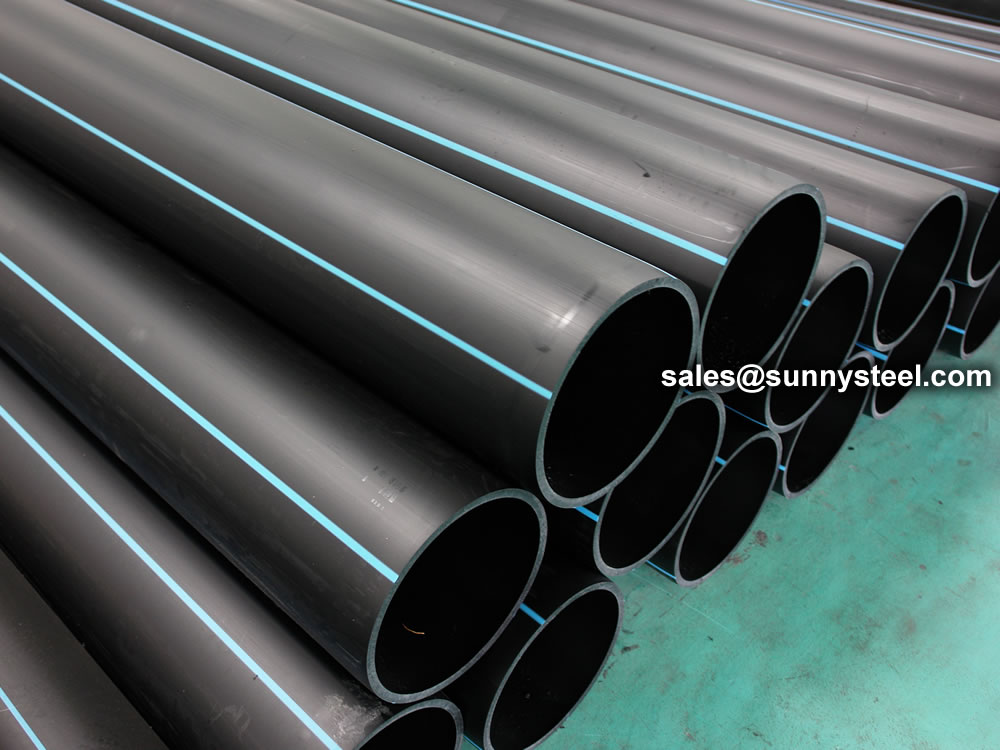Pipe Manufacturing Midland TX: Process Explained
Understanding the Secret Conveniences of HDPE Pipe for Water and Wastewater Monitoring
The usage of HDPE pipe in water and wastewater management presents countless benefits that warrant factor to consider. Its remarkable sturdiness and lengthy life-span make it a preferred selection for lots of projects. Furthermore, the material's resistance to rust and chemical damages enhances its reliability in numerous settings. Nonetheless, the advantages prolong past just longevity and resistance. Discovering its cost-effectiveness and environmental effect discloses a lot more compelling factors for its prevalent adoption in modern facilities
Remarkable Toughness and Long Life

HDPE pipe sticks out for its remarkable longevity and durability, making it a favored choice in water administration systems. Created from high-density polyethylene, these pipes can withstand significant pressure and anxiety, guaranteeing trustworthy performance with time. Their robust nature permits them to withstand severe environmental conditions, consisting of temperature fluctuations and soil movements, which can create other products to fall short.
The life-span of HDPE pipelines commonly goes beyond 50 years, providing an affordable remedy for municipalities and sectors alike. Furthermore, the product's light-weight buildings streamline installment, lowering labor prices and timeframes. This toughness decreases the requirement for frequent fixings or substitutes, further improving its financial allure.
In water monitoring applications, the integrity of HDPE pipelines indicates less disturbances and improved service connection, making them indispensable to sustainable framework advancement. The mix of durability and longevity solidifies HDPE's role as a foundation in effective water monitoring services.

Resistance to Corrosion and Chemical Damage
While several materials catch corrosion and chemical damages over time, HDPE pipes exhibit remarkable resistance, making them ideal for various water monitoring applications. This resilience originates from the molecular framework of high-density polyethylene, which is naturally non-reactive and does not wear away like steels or weaken from exposure to severe chemicals. Therefore, HDPE is very reliable in environments with hostile substances, such as wastewater systems that may contain acids, bases, and organic solvents.
Furthermore, HDPE pipes can endure environmental elements such as soil level of acidity and saline conditions, additionally improving their suitability for varied applications (custom hdpe pipe manufacturing Midland TX). Their capability to preserve structural integrity gradually reduces the threat of leaks and failures, which is crucial in ensuring the safety and reliability of water distribution and wastewater administration systems. As a result, the resistance to deterioration and chemical damage considerably adds to the total effectiveness and longevity of HDPE piping services
Cost-Effectiveness and Financial Advantages
When taking into consideration the economic effects of water administration systems, the cost-effectiveness of HDPE pipes becomes obvious. These pipes use lower setup and maintenance prices compared to conventional materials like steel or concrete. Their light-weight nature simplifies transport repipe plumbing and installment, leading to lowered labor costs. In addition, HDPE pipelines exhibit a lengthy life expectancy, often exceeding half a century, which translates to less substitutes and long-term cost savings.
In addition, the resistance of HDPE to rust and chemical damage lessens the requirement for pricey repair work and replacements. The pipelines also support efficient water flow, lowering power prices connected with pumping systems. By reducing leaks and water loss, HDPE pipelines contribute to significant financial advantages for towns and sectors alike. Generally, the preliminary financial investment in HDPE piping can produce substantial monetary returns over the life-span of the water administration system, making it a prudent choice for lasting infrastructure growth.
Ecological Sustainability and Decreased Impact

Versatility and Adaptability in Installment
Due to their special properties, HDPE pipes provide remarkable flexibility and flexibility in setup, making them suitable for a wide array of applications. Their light-weight nature permits less complicated handling and transport, minimizing labor prices and installment time. HDPE pipes can be curved and shaped to fit various terrains and task requirements, which is especially beneficial in challenging atmospheres.
In addition, their resistance to rust and chemical damage permits for installation in varied settings without the need for specialized protective finishings. The capacity to fuse joints creates a continual, leak-free system, enhancing the general stability and integrity of the installment. HDPE's adaptability also suits ground movement, lowering the threat of damages in locations vulnerable to shifting dirt. Generally, these qualities make HDPE pipes not only versatile yet likewise a preferred selection for water and wastewater monitoring systems.
Frequently Asked Concerns
Just How Does HDPE Pipeline Contrast to PVC in Water Administration Applications?
HDPE pipe provides premium adaptability, resistance to corrosion, and resilience compared to PVC. Its lighter weight assists in easier installment, while its lengthy life expectancy reduces replacement costs, making HDPE a favored option in water management applications.
What Is the Lifespan of HDPE Pipeline Under Normal Problems?
Under regular problems, HDPE pipes can have a life expectancy ranging from 50 to 100 years. Their durability and resistance to rust add to their long-term performance in various applications, making them a reliable choice for infrastructure.
Are HDPE Pipes Recyclable After Their Life Span?
Yes, HDPE pipelines are recyclable after their life span. Pipe Manufacturing Midland TX. They can be refined and repurposed into brand-new items, significantly decreasing environmental effect and advertising sustainability within the market, making them an environmentally friendly choice for piping solutions
What Is the Setup Refine for HDPE Pipes?
The installation procedure for HDPE pipes entails website company website prep work, trenching, pipeline fusion or mechanical signing up with, backfilling, and pressure testing. Appropriate methods assure a long lasting and efficient system for moving water and wastewater successfully.
Can HDPE Piping Be Used for Both Potable and Non-Potable Water Systems?
Yes, HDPE pipelines can be used for both safe and clean and non-potable water supply. Their versatility, toughness, and resistance to corrosion make them suitable for various applications, making certain secure and effective transportation of water in different contexts.